
Microdosing THC: What Is It And How Does It Work?
Are you new to cannabis or have a low tolerance for cannabinoids like THC? Microdosing might hold the answer to how you can use cannabis without wrestling with the plant's heavily intoxicating effects.
Microdosing THC is becoming ever more popular, allowing users to enjoy the effects of cannabis in a controlled manner, both recreationally and medicinally. If you're interested in microdosing THC, keep reading to learn how it works and how you do it.
What is microdosing?
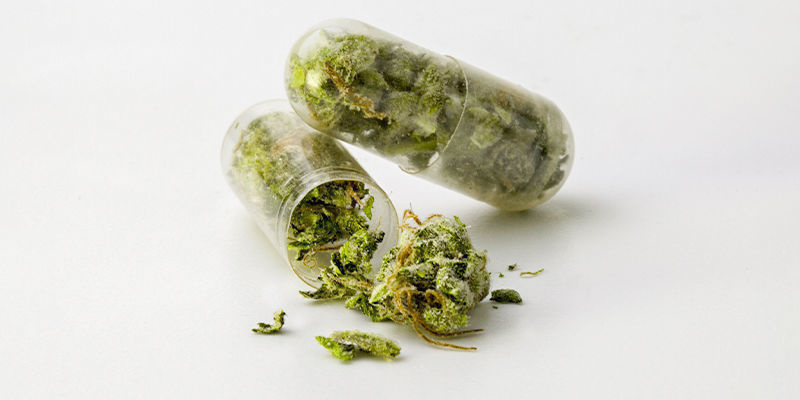
Microdosing, as the name suggests, involves taking small (technically sub-perceptual) doses of a psychoactive substance, typically LSD and psilocybin, though it can also be used to administer THC. And while it's become a bit of a trend in recent years, microdosing has actually been around since the 1960s. One of the pioneers of microdosing is American author Dr. Jim Fadiman, a Stanford psychology graduate and founder of Sofia University in Palo Alto, California (previously known as the Institute of Transpersonal Psychology).
A student of Ram Dass, Fadiman developed an interest in psychedelics after first trying psilocybin in 1961. Today, he is widely regarded as the father of microdosing and has developed his own guideline for microdosing known as the Fadiman Protocol—also known as the 1-day on, 2-days off approach.
Jim Fadiman defines microdosing as a completely different approach to regular psychedelic or cannabis use. When administered properly, microdoses of psychoactive compounds like THC, LSD, or psilocybin produce no "high" (such as visual distortions or other changes in perception). Instead, the effects of microdosing are much more subtle and comparable to the effects of drinking coffee or taking Adderall—though it’s a weak comparison.
"People report that their system works better when they are microdosing, and that the microdose is such a small dose that someone described it as sub-hallucinogenic, meaning no distortions and no interference with functioning," Fadiman told Raise The Line Podcast (Gaglani, 2022).
When microdosing THC, the effects are often similar. Many users report a general sense of well-being or even relief from certain medical conditions/symptoms, without the notorious high or stone typically produced by regular doses of THC.
How to microdose THC
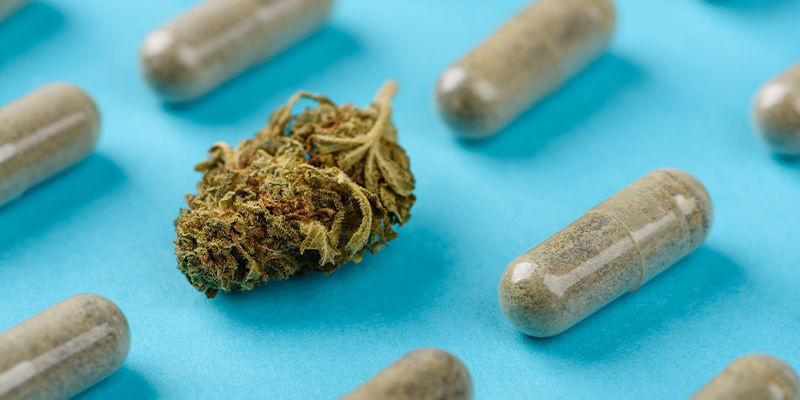
There are many different approaches to microdosing. The Fadiman Protocol, however, is very popular and commonly recommended by people who microdose regularly. At its core, the Fadiman Approach involves microdosing for 1 day, then taking a 2-day break. After microdosing regularly for 1–2 months, it's advisable to take a 1–4-week break to avoid developing a tolerance.
So, you now know with what frequency to microdose. But what exactly constitutes a microdose of THC? In general, a microdose of cannabis (or any psychoactive substance, for that matter) is considered to be 20–50% of a regular dose. In legal cannabis markets, 10mg of THC is typically considered a standard dose, meaning a microdose should be anywhere from 2–5mg.
Note, however, that these are pretty broad guidelines. If you've never tried cannabis before or you know you have a low tolerance for THC, don't be afraid to take a 1–2 mg microdose to get started. You can always work your way up from there to find your perfect dose, which will vary depending on your:
- Age
- Size
- Metabolism
- Tolerance to THC
- The type of product you're using
What are the best cannabis products for microdosing?
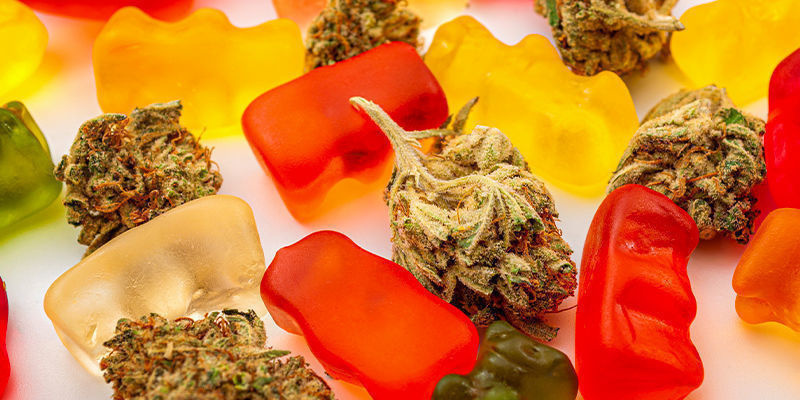
When microdosing THC, it's important you know the strength of your weed. Obviously, this is much easier in legal cannabis markets where you have access to tested products. In legal cannabis markets, we recommend microdosing with products that are easy to dose, such as:
- Tinctures, which you can dose easily in ml
- Edibles, which can easily be dosed in mg
- Tablets or capsules, which typically come in pre-measured doses
If you don't have access to any of these products, your next best bet would be to try and microdose dry flowers or concentrates in a vaporizer. Unfortunately, this is a lot less accurate and you’ll have to start very small to figure out what works. Trying to do this everyday without getting high is unlikely, so it’s not really a viable method.
If you know the THC percentage of the weed, then you can work out how many mg’s are in a single gram. For instance, a gram of 20% bud has 200mg of THC in it. Therefore, 10mg of this bud will contain 2mg of THC, and will be a good starting point for a microdose.
Microdosing weed without knowing its THC percentage
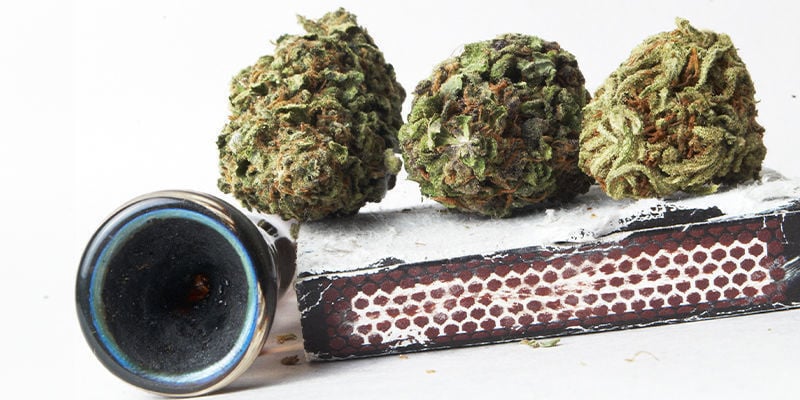
Unfortunately, if you don't live in the US, Canada, or Uruguay, chances are you'll have a tough time sourcing weed with tested levels of THC. If that's the case, it's virtually impossible to accurately microdose. At best, consider rolling yourself a joint with 0.1–0.2g of ground weed, light it up, and take a single hit.
Alternatively, take a single hit from a one-hitter pipe or small bong. While you'll have no idea how much THC you're consuming, this is the best you can hope for in markets where cannabis is still illegal and unregulated.
Why microdose THC?
Unfortunately, there's still a lot we do not know about how microdosing works on the brain and body. Moreover, most of the limited scientific literature on microdosing focuses on microdosing psychedelics. Nonetheless, user reports suggest that microdosing THC can produce favourable effects in some people, particularly related to their mood, concentration/motivation, and stress levels–all without producing an intoxicating high.
The benefits of microdosing THC
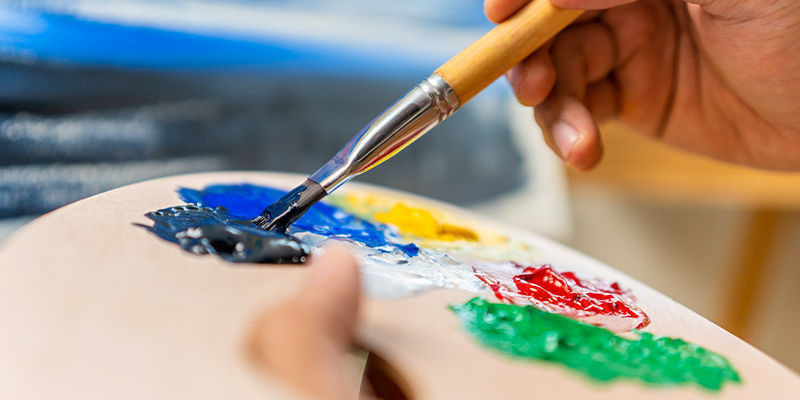
Some of the positive effects of microdosing THC reported by users include:
- Reduced stress and anxiety
- Improved mood
- Improved focus and motivation
- A heightened sense of sociability
- Better creative thinking
Are there risks to microdosing THC?
THC can be a safe and non-toxic compound, especially when taken in small doses. In fact, microdoses of THC are often recommended as a great starting point for people who are curious about using cannabis but are new to the substance or have a low tolerance. However, more research is needed to really understand the full scope of the effects of microdosing, as well as if it has any potential risks.
Microdosing: A controlled way of using cannabis
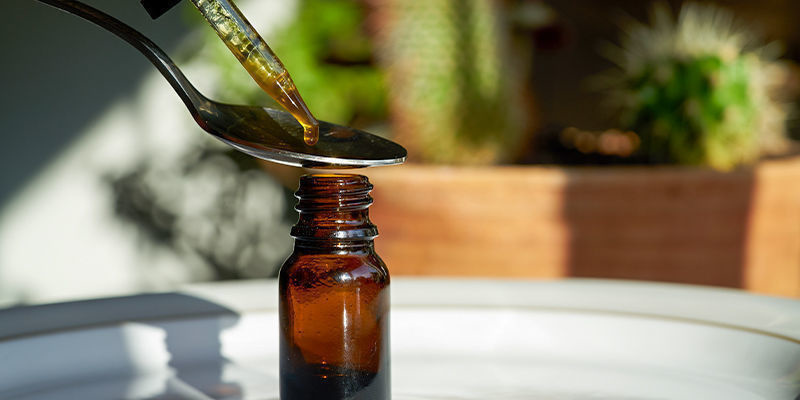
Cannabis is one of the most commonly used drugs on the planet. And as more research goes into understanding the chemical composition of cannabis and the effects it has on the body, we're constantly discovering new ways to use the plant both for recreational and therapeutic purposes. Microdosing is becoming an evermore popular way of consuming cannabis, allowing people to enjoy effects of cannabinoids without the heavy intoxicating high associated with the plant and its use.
- Gaglani, & S. (2022). What a Long Strange Trip: The Fall and Rise of Psychedelics in Medicine - https://www.osmosis.org
-
 3 min
January 11, 2024
Microdosing Methods For Magic Truffles
Microdosing has been around for some time now, and you don't have to look far to find users singing its praises. When it comes to microdosing magic truffles, this sentiment is no different. Here we...
3 min
January 11, 2024
Microdosing Methods For Magic Truffles
Microdosing has been around for some time now, and you don't have to look far to find users singing its praises. When it comes to microdosing magic truffles, this sentiment is no different. Here we...
-
 5 min
December 18, 2023
Demistifying Microdosing With Wise Rootz
As the interest in microdosing continues to grow, brands like Wise Rootz are constantly innovating new ways to elevate our experience with psilocybin. Keep reading to learn more about Wise Rootz...
5 min
December 18, 2023
Demistifying Microdosing With Wise Rootz
As the interest in microdosing continues to grow, brands like Wise Rootz are constantly innovating new ways to elevate our experience with psilocybin. Keep reading to learn more about Wise Rootz...
-
 3 min
April 3, 2023
All You Need To Know About Microdosing LSA
As a naturally occurring psychedelic substance in some plants, LSA has long been favoured for its potent effects that are often likened to those of LSD. However, while trips are one thing, many are...
3 min
April 3, 2023
All You Need To Know About Microdosing LSA
As a naturally occurring psychedelic substance in some plants, LSA has long been favoured for its potent effects that are often likened to those of LSD. However, while trips are one thing, many are...
-
 6 min
February 3, 2023
How Often Should You Microdose?
Taking tiny amounts of psychedelics could boost your focus, creativity, and mood, all while you go about life as usual. Welcome to the practice of microdosing. But just how often should you do it?...
6 min
February 3, 2023
How Often Should You Microdose?
Taking tiny amounts of psychedelics could boost your focus, creativity, and mood, all while you go about life as usual. Welcome to the practice of microdosing. But just how often should you do it?...











 United States
United States








